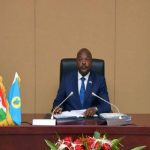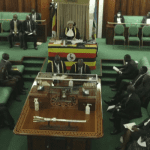Burundian President Evariste Ndayishimiye recently launched a scathing attack on same-sex marriage, calling it a “abominable practice” and asking for the stoning of gay couples for religious reasons.
The President, who is well-known for his orthodox Christian views, has previously called for homosexuals to be “banished” and treated as outcasts.
He chastised Western countries that oppose LGBTQ+ rights and flatly refused aid from those who advocate such behaviors, asking those who hold such attitudes to remain overseas.
This position is consistent with the conservative Christian ideals common in the Great Lakes region, where same-sex relationships are penalized by imprisonment.
This statement comes in reaction as the global discourse on LGBTQ+ rights has seen some notable developments, such as Pope Francis’ declaration on 18th December regarding the blessing of homosexual couples.
While this marks a symbolic shift in the Catholic Church’s stance, it’s essential to note that the Church maintains a clear distinction between homosexual and heterosexual marriages.
The Vatican’s doctrine of the “one true marriage” underscores its position that while marriage for all is tolerated, it is not yet fully accepted within the Catholic religion.
However, implementing such changes globally is a complex endeavour.
Despite the Vatican’s guidance, the ability to enforce a shift in mentality and impose measures across all Catholic communities proves challenging.
Several African churches have already expressed their opposition to these developments. The bishops of Cameroon, for example, have publicly denied any reform, stating, “We formally prohibit all blessings of homosexual couples.”
Similarly, Togo has professed openness to people in same-sex partnerships but has asked priests not to bless such couples.
This dynamic illustrates the Catholic Church’s continued battle to reconcile diverse opinions on LGBTQ+ problems, highlighting the friction between worldwide doctrinal advances and the autonomy of specific religious communities, particularly in conservative places like Africa.














